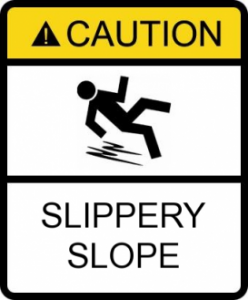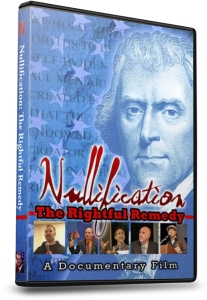 On Monday, the U.S. Supreme Court struck down a Montana law banning campaign spending by corporations in the state. The 100-year-old Montana statute provided that a “corporation may not make . . . an expenditure in connection with a candidate or a political committee that supports or opposes a candidate or a political party.” In 2010, the U.S. Supreme Court struck down a similar federal law in Citizens United v. Federal Election Commission. In a 5-4 decision, the Court ruled Citizens United also applies to the states.
On Monday, the U.S. Supreme Court struck down a Montana law banning campaign spending by corporations in the state. The 100-year-old Montana statute provided that a “corporation may not make . . . an expenditure in connection with a candidate or a political committee that supports or opposes a candidate or a political party.” In 2010, the U.S. Supreme Court struck down a similar federal law in Citizens United v. Federal Election Commission. In a 5-4 decision, the Court ruled Citizens United also applies to the states.
“The question presented in this case is whether the holding of Citizens United applies to the Montana state law. There can be no serious doubt that it does. See U. S. Const., Art. VI, cl. 2. Montana’s arguments in support of the judgment below either were already rejected in Citizens United, or fail to meaningfully distinguish that case.”
The Montana law dates back to 1912 when “copper kings” and mining barons controlled politics in the Big Sky State. In essence, the Montana Supreme Court justified the state law, even in light of Citizen, arguing it addressed an extreme situation, overriding the First Amendment protections considered in the SCOTUS ruling. The state court said the history of corruption and other factors unique to Montana justified the ban.
But the arguments presented by both the Montana Court and the SCOTUS miss a more fundamental issue.
The Citizens United ruling addressed a federal law. Whether one agrees with its reasoning or not, U.S. Supreme Court was well within its power to strike it down based on First Amendment considerations. But the Court overstepped its legitimate constitutional authority in the Montana ruling. If one holds to the original meaning of the Constitution, the federal government does not have the power to meddle in state campaign finance laws.
The Citizens United ruling hinges on First Amendment protections of free speech. The Court held corporations and unions enjoy a right to donate an unlimited amount of money to political campaigns. But a simple reading of the First Amendment makes it clear it doesn’t apply to the states.
“Congress shall make no law…abridging the freedom of speech…”
It’s difficult to conceive how a judge can make the jump from “Congress shall make no law,” to “the Montana legislature shall make no law.”
But the Supreme Court did just that, pulling the notion that the First Amendment applies to the state governments out of its collective rear-end in the 1925 case Gitlow v. New York. The SCOTUS didn’t base its argument on any precedent; it simply asserted that the 14th Amendment bound the states to the federal conception of free speech and free press.
“For present purposes we may and do assume that freedom of speech and of the press — which are protected by the First Amendment from abridgment by Congress — are among the fundamental personal rights and ‘liberties’ protected by the due process clause of the Fourteenth Amendment from impairment by the States.”
Poof – with an assumption and a stroke of a pen, seven judges created an entirely new constitutional principle out of thin air. It made up a completely novel reading of the 14th Amendment some 50 years after its ratification. The Court never even justified its logic. It simply “assumed” for its “present purposes.”
Nice.
So, the recent U.S. Supreme Court decision rests under a veil of legitimacy if one simply takes into account SCOTUS rulings over the last 90 years. But the entire argument rests on a faulty premise and crumbles into dust in light of the original meaning of the constitution and the 14th Amendment.
In his dissent, Justice Stephen Breyer stumbled on a fundamental truth and the reason framers created a federal government with specific limited powers, leaving authority over “all objects which, in the ordinary course of affairs, concern the lives, liberties and properties of the people, and the internal order, improvement and prosperity of the State,” to the states and the people. Decisions from a centralized authority often ignore local experience and concerns.
“Moreover, even if I were to accept Citizens United, this Court’s legal conclusion should not bar the Montana Supreme Court’s finding, made on the record before it, that independent expenditures by corporations did in fact lead to corruption or the appearance of corruption in Montana. Given the history and political landscape in Montana, that court concluded that the State had a compelling interest in limiting independent expenditures by corporations,” Breyer wrote.
Bow down Montana! The central planners know better than you!
Ironically, 100 years of progressive jurisprudence and the extension of federal authority into state affairs bit liberals in the butt this time around. And conservatives abandoned their “states’ rights” rhetoric to cheer a ruling based on nearly a century of judicial activism usurping legitimate state power, as senior fellow in Governance Studies at the Brookings Institution E.J. Dionne points out in a Washington Post op-ed.
“Will everyone please finally admit that conservatives actually don’t care a whit about states’ rights unless invoking states’ rights happens to be helpful to the conservative agenda? Conservatives on the Court have become complete and utter hypocrites on the matter of what states can and can’t do.”
The most recent U.S. Supreme Court ruling vividly illustrates the convoluted mess created by accepting Supreme Court opinion as the law of the land, and Court precedent as unassailable gospel, instead of holding to the intended meaning of the Constitution every issue, every time, no exceptions, no excuses. We should always evaluate the legitimacy of a federal act in light of the original Constitution, not solely on the opinion of some long dead lawyers. The hesitancy to question past SCOTUS decisions makes its discretion and not the Constitution the fundamental law of the land.
“We the people” have allowed the Court to turn the United States into an oligarchy run by nine politically connected lawyers. The question is, when will “we the people” and the states insist on reclaiming their rightful power?
- Thomas Jefferson’s Warnings and Predictions about the Dangers of Money-Printing - April 18, 2024
- Utah’s Step-By-Step Strategy in Support of Sound Money - April 9, 2024
- Utah’s Step-By-Step Strategy Against the Surveillance State - April 1, 2024

